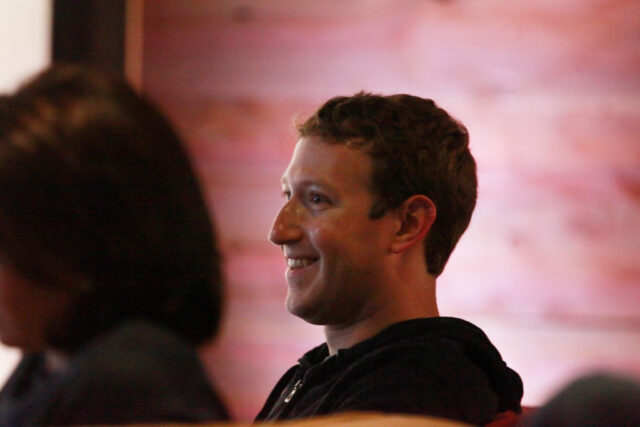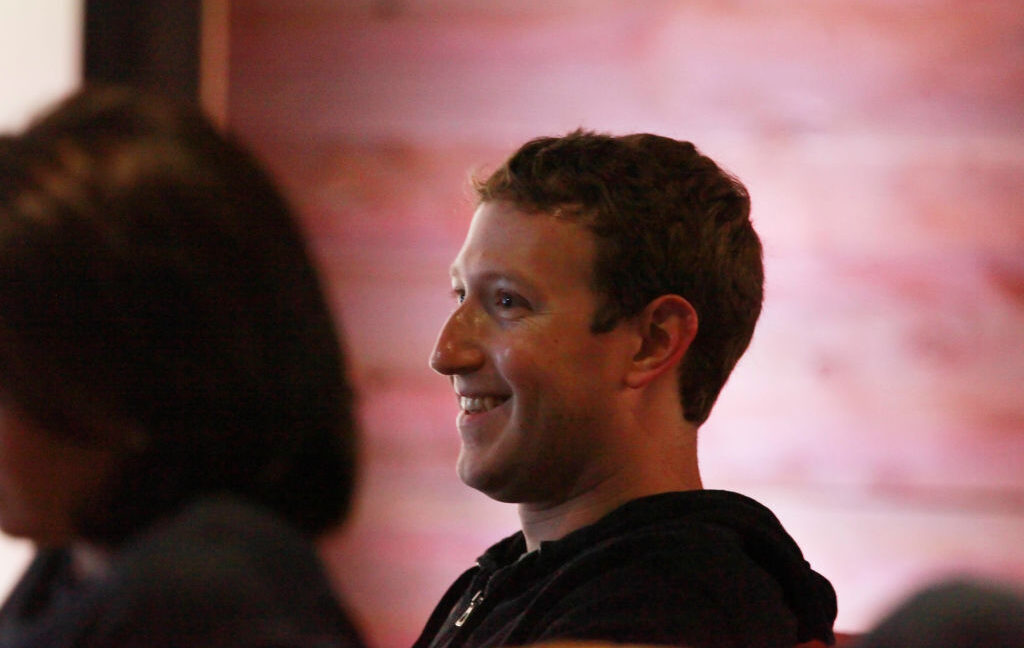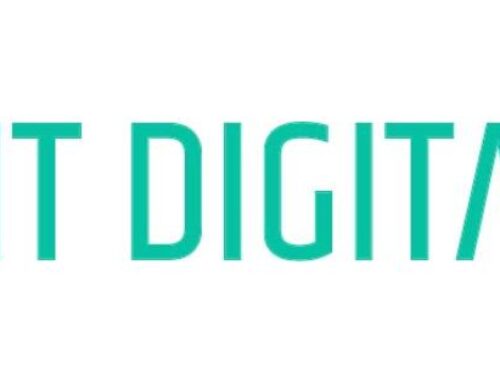Zuckerberg stifled Instagram because he loves Facebook, Instagram founder says
April 23, 2025
Before acquiring Instagram, Mark Zuckerberg swore Facebook had “no agenda.”
Credit:
San Francisco Chronicle/Hearst Newspapers / Contributor | Hearst Newspapers
At the Meta monopoly trial, Instagram co-founder Kevin Systrom accused Mark Zuckerberg of draining Instagram resources to stifle growth out of sheer jealousy.
According to Systrom, Zuckerberg may have been directly involved in yanking resources after integrating Instagram and Facebook because “as the founder of Facebook, he felt a lot of emotion around which one was better—Instagram or Facebook,” The Financial Times reported.
In 2025, Instagram is projected to account for more than half of Meta’s ad revenue, according to eMarketer’s forecast. Since 2019, Instagram has generated more ad revenue per user than Facebook, eMarketer noted, and today makes Meta twice as much per user as the closest rival that Meta claims it fears most, TikTok.
Seeming to back up Systrom’s claim that Zuckerberg acted irrationally in suppressing Instagram was a 2018 email in which Zuckerberg considered selling off Instagram to “immediately stop artificially growing Instagram in a way that undermines the Facebook networks.”
That email came right at the moment when Instagram was overtaking Facebook’s ad revenue per user, the data suggests, and Systrom testified that he felt Zuckerberg’s strategy seemed so fishy that he left the company that year.
“Every company needs to make trade-offs, but… [it] felt like something else was going on,” Systrom testified.
Some of Zuckerberg’s interviews from 2012—the year that Facebook bought Instagram—suggest that Systrom may be onto something. In a talk with Y Combinator’s Startup School, Zuckerberg passionately explained that Facebook’s services are about “what makes humans human” and made a mission of expanding the social capacity of humanity beyond Dunbar’s number, which claims that the human brain can only handle maintaining about 150 relationships.
At that time, the average Facebook user had about 150 connections, Zuckerberg said, and he fervently wanted the service to essentially train human brains to manage even more social interactions than ever before.
“There had to be a service that gave people the power to share the things they wanted and control it in the way they wanted, and Facebook did that,” Zuckerberg said. And about his ambition to multiply Dunbar’s number, he said, “it was fundamental for me. I felt this need really acutely; I really wanted this.”
Systrom testified that Zuckerberg favored Facebook so much that he began starving Instagram of resources, including denying any additional staffing to help build out Instagram’s video tools in 2017.
“We were given zero of 300 incremental video heads, which is an unacceptable and offensive outcome,” Systrom testified.
Systrom’s testimony, the FT reported, “hit at the heart” of the Federal Trade Commission’s case, as the FTC has alleged that Meta cut off Instagram’s growth to avoid Facebook’s “network collapse.” Antitrust lawyer, Brendan Benedict, who is monitoring the trial, wrote on X that Systrom was “a really effective witness” who appeared “justifiably upset with how Zuckerberg didn’t seem to be keeping his end of their bargain.”
By 2018, Systrom testified that Meta viewed Instagram as a “threat” to Facebook’s growth, The Verge reported.
“If Instagram didn’t grow as quickly, Facebook wouldn’t shrink as quickly or plateau as quickly,” Systrom testified. “I don’t think he [Zuckerberg] ever said it out loud that way, but that was the only reason we were having this discussion” about ending feature integrations between Facebook and Instagram—which was one of the primary ways Meta had fueled Instagram’s growth.
On Tuesday, Meta issued a statement following Systrom’s testimony that maintained Meta’s argument that the FTC is rehashing old deals that the agency long ago approved.
“Out-of-context and years-old documents about acquisitions that were reviewed by the FTC more than a decade ago will not obscure the realities of the competition we face or overcome the FTC’s weak case,” Meta said.
“We have no agenda,” Zuckerberg said in 2012
Tensions between Zuckerberg and Instagram co-founders Systrom and Mike Krieger started before the acquisition, Zuckerberg told attendees at the 2012 TechCrunch Disrupt conference.
Explaining that then-Facebook was impressed by Instagram’s use of its open graph to make sharing Instagram’s appealing photos on Facebook easier, Zuckerberg said that the decision to acquire Instagram came after realizing that Facebook wasn’t deriving value from supporting the popular camera app.
“There’s this question of, OK, well, we can help them grow,” Zuckerberg said. “But without the value occurring to us,” so I just brought up the idea to Kevin—hey, maybe we should just join and become one company.”
Listening to Zuckerberg at that time, it’s easy to see why Systrom so defiantly pushed back on the stand against Meta’s claims that its choices were made purely to fuel Instagram’s growth. Zuckerberg insisted early on that Instagram wouldn’t be forced to integrate with Facebook, which, of course, eventually happened.
“We think Instagram is amazing, and we want to help it grow to hundreds of millions of users,” Zuckerberg said in 2012. “We want to help them out with whatever we can, but we have no agenda in terms of making them go into our infrastructure or something. I know a lot of times companies force companies that they’re integrating to do stuff like that. I think it’s primarily a waste of time.”
Systrom testified that rather than support Instagram, Meta quickly pulled Facebook growth team staff off Instagram, crippling its growth, The Verge reported.
Instagram’s “first slowdown that we had was maybe a year into being at Facebook,” Systrom testified, saying that “Meta had the ‘best’ growth team, ‘if you could work with them,'” the FT reported.
On X, Benedict reported that Meta’s lawyer scored “some points” by getting Systrom to admit that Instagram pre-acquisition decided “not to compete” with Facebook and had no intentions of ever becoming a social network (seeing itself more as an interests-based app focused on sharing photography). That could undercut the FTC’s argument that Facebook shut down a rival’s growth.
Court must determine who Meta’s real rivals are
The FTC needs to convince the court that Meta holds a monopoly in a market for personal social networks after foreclosing competition, partly by acquiring Instagram. Meta is hoping to broaden the market definition to pull in other social media rivals, like TikTok, that would significantly reduce Meta’s market share below monopoly levels.
If the FTC wins, Instagram may be spun off from Meta’s “family of apps,” which the FTC believes would, for the first time ever, force Meta to face competition as a social media company focused on connecting friends and family.
Some critics think that Meta has never really had rivals. Back in 2012, Zuckerberg claimed in his talk with the Startup School that Facebook had no beef with MySpace, for example, which crumpled in the face of Facebook’s competition. Instead, he insisted that for Facebook, “it’s not about winning and losing. It’s about doing something that’s valuable.”
But when Zuckerberg tried to claim that there was “more than one” social network in 2012, the Startup School interviewer abruptly interrupted him.
“More than one social network? Not really,” the interviewer joked, stirring loud laughter from the audience by pointing out the obvious.
Rather than point to any Facebook rivals, Zuckerberg dodged by saying that Facebook’s integration into a wide range of apps had made nearly everything people did online social.
“My view of the world is almost every product and category is going to get transformed and reimagined to be social,” Zuckerberg said, almost paving the way for Meta’s argument today that it faces vast competition in every direction, including from video apps like YouTube or professional social networks like LinkedIn.
Similarly, at the 2012 TechCrunch conference, Zuckerberg explained that Facebook isn’t about dominating markets but is instead about fulfilling his vision of expanding the way that humans connect in the world.
“We don’t build services to make money,” Zuckerberg said. “We make money to build better services.” And that “really goes to the heart of the philosophy that we have in running the company,” he said. “We exist and we wake up in the morning, and the thing that gets us excited is making a world more open and connected.”
Systrom alleged to the court that, in reality, Zuckerberg ran Facebook based on his personal desire to have his flagship product remain on top. When confronted with an email in which Systrom praised Instagram’s seemingly inevitable integration with Facebook for driving growth, Systrom claimed “he was only emphasizing the benefit to appease Zuckerberg,” The Verge reported, amid rising tensions between the founders. And when Meta’s lawyer asked if that meant he was lying in the email, Systrom appeared to run out of patience for Meta’s line of questioning, responding only with a terse “Sir.”
On X, Benedict joked that for everyone closely watching the testimony from one of the FTC’s star witnesses, it was ” the ‘Sir’ heard round the world.”
Search
RECENT PRESS RELEASES
Related Post






